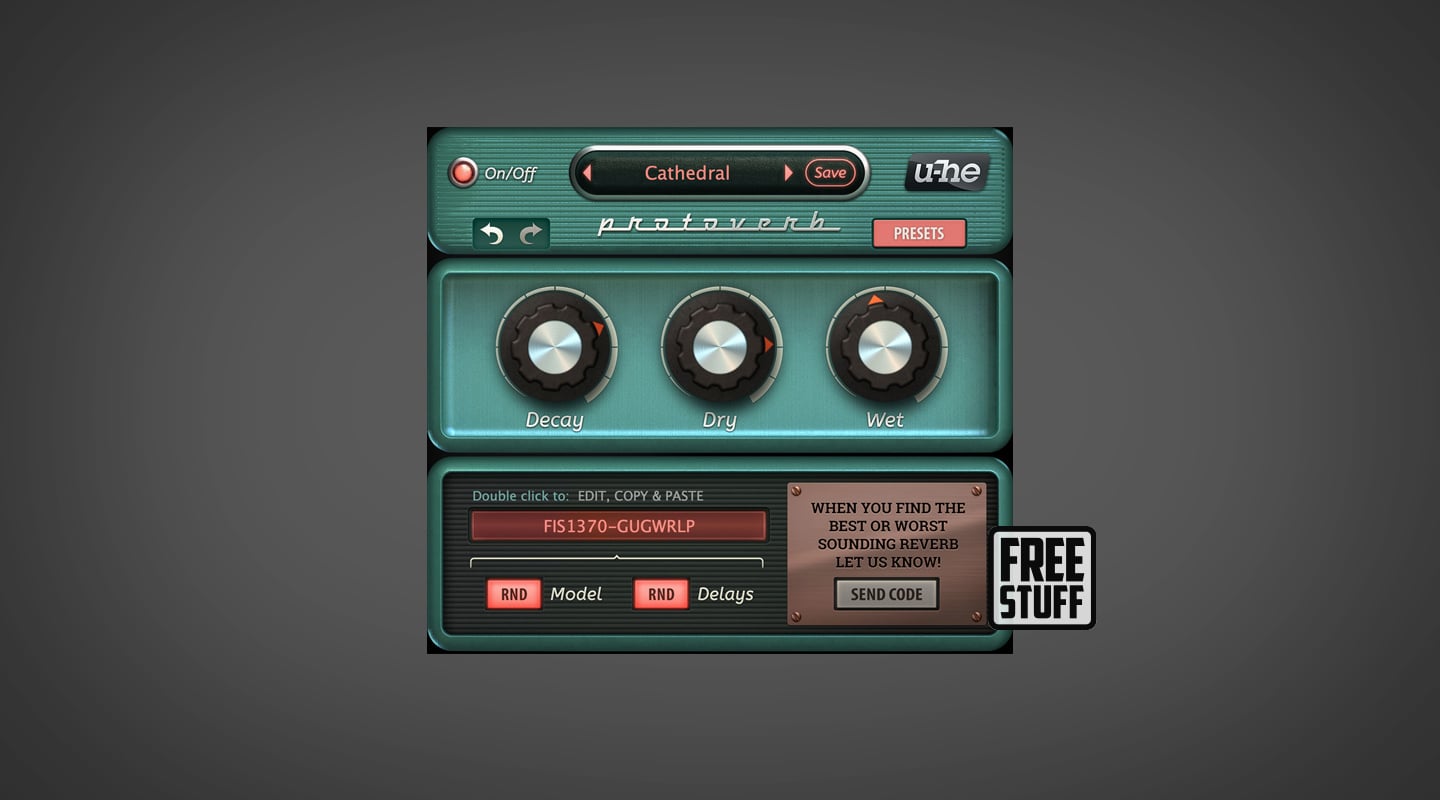
u-he: Protoverb
A free ‘experimental research’ reverb plugin.
Initially starting as a one-man show, the u-he company has been designing synths and effects since 2001. It now consists of a team of dedicated developers, musicians, designers, and creators, whose many viewpoints, backgrounds, and experiences provide it with a rich, dynamic landscape. u-he’s plugins have the depth to satisfy the most discerning musicians, composers, and producers. The company also boasts an active and passionate group of customers and fans. This community is a place where users can get inspired or learn something new.
Protoverb is a natural sounding reverb based on the concept of a room simulator, based around an experimental ‘prototype’ approach. Most algorithmic reverbs try to avoid resonances or model the reflections of sound from a room’s walls. Protoverb does the opposite. It builds up as many room resonances as possible, modelling the body of air in the room. No need to modulate or colour the signal. The result is a very natural sounding reverberation with interesting characteristics such as:
- Notes held for a longer time tend to build up resonance, as if the air takes a while to get excited
- Multiple instruments remain distinct without disappearing in a wash
- When you play a short melody the room seems to repeat a ghost echo of that melody
These properties are found in churches and large halls, but are rarely in conventional algorithmic reverbs. To achieve this, Protoverb works with many parallel, serial, and networked delays. With such a structure, no mathematical formula can make it sound right, so it comes down to trial and error — and luck — using random values.
The text box at the bottom of Protoverb’s interface contains a text string made up of two random parts. The first dictates the network structure, strategies for spatial layout and distribution of delay taps, strategies for finding useful delay lengths, and so on. The second half is a seed for a pseudo-random number generator that is used to set various parameters such as the average delay length, which prime number to choose (if any), etc. Users can either edit the text or randomise each part independently by using the buttons below the text box.
u-he refers to Protoverb as ‘researchware’ because it is both free and an attempt to ‘mine’ data. Instead of the company spending months researching and testing for themselves, it wanted to see what useable settings could put forward by the community in its own explorations. If you find a great setting among the random delay line lengths, networks, and feedback strategies make sure to pass it on.
















RESPONSES